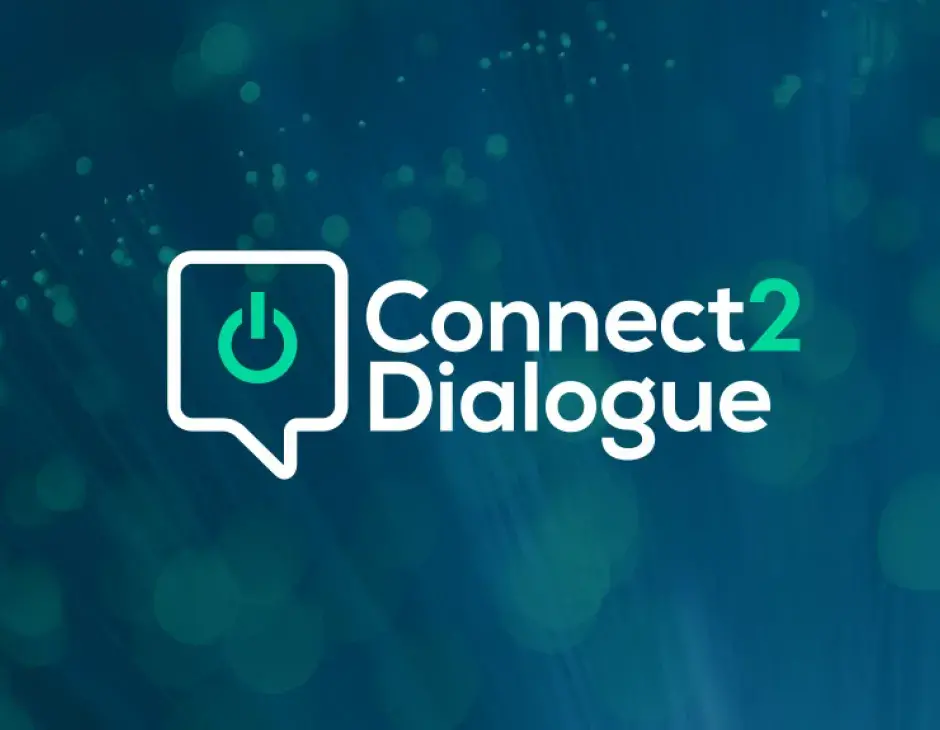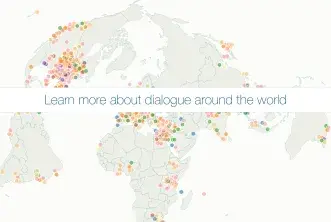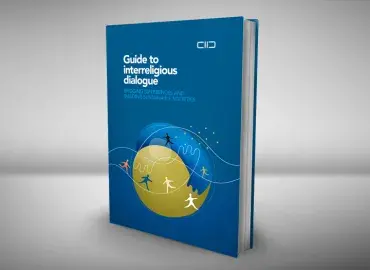The International Dialogue Centre (KAICIID) today launched Connect2Dialogue, a digital networking platform which will connect interreligious dialogue practitioners and experts from across the globe.
The resource joins the Centre’s wide range of e-learning and knowledge tools which support interreligious dialogue initiatives such as peacebuilding, conflict resolution, hate speech prevention and sustainable development.
According to Anja Piskur, programme manager for peace mapping and virtual platforms, Connect2Dialogue was developed after KAICIID’s e-learning team brainstormed ways to improve user experience of the Centre’s other flagship projects such as Who is Who in Interreligious Dialogue and the Peace Map.
“We wanted to figure out a way to connect more interreligious dialogue practitioners on a daily basis and keep them in the loop about interfaith affairs. Our initial directory, which identifies organizations and actors around the world working on interreligious dialogue, proved to be so popular that we knew we needed to further support individuals working in these areas.”
Piskur’s team also consulted with religious actors and dialogue practitioners to identify which resources were most needed to address evolving challenges in the field, such as COVID-19.
“During the pandemic we have seen how important online networks are,” she said. “We wanted to create a unique networking opportunity to ensure dialogue continues across the globe, so that dialogue practitioners can find the resources and funding they need, especially when in-person exchange remains challenging.”
The new digital space will continue to offer resources for the general public but will also offer special members-only features such as the ability to expand personal contacts both regionally and around the world, foster partnerships with others working on similar projects, exchange ideas and resources, and form interest groups. Additionally, members will have access to job boards and funding opportunities, as well as shared calendar of interreligious dialogue events.
Membership is free and open to anyone working in dialogue; however, an application and verification process ensures the safety of members who may operate in sensitive areas of the world. Discussion platforms will also be moderated.
“KAICIID’s online presence has always sought to provide a safe space for the exchange of ideas and best practices,” Piskur said. “Adding a members-only section to our digital platform meant that we could scale up knowledge sharing and partnerships and maintain a respectful environment. We also recognise that many of our stakeholders who work on the frontlines of conflict and crisis need a more protected space to find support and funding for their projects in the field.”
KAICIID’s other e-learning resources, such as monthly webinars on trending global topics including sustainable development, COVID-19 response, and refugee integration, will remain free and open to the public. The Centre’s popular online courses were also significantly expanded this past year through the support of partners including the Lutheran World Foundation, the United Nations Environment Programme (UNEP), UPEACE and the National Muslim Council of Liberia. Course topics include the role of faith in the United Nations Sustainable Development Goals and hate speech prevention, as well as the Centre’s flagship courses on using interreligious dialogue to strengthen peace, reconciliation and social cohesion.
Professor Patrice Brodeur, KAICIID Senior Adviser, explained that the expanded portfolio of digital resources, combined with a new and multi-dimensional user-engaged platform continues KAICIID’s commitment to knowledge sharing and capacity building within interreligious dialogue.
“KAICIID’s e-learning and knowledge programme’s main objective has always been to strengthen the individual, institutional and organizational capacities of KAICIID stakeholders and the wider interreligious dialogue community. The aim of launching Connect2Dialogue, and adding it to our pre-existing online resources, is to provide an engaging environment which fosters not only an exchange of ideas but also a safe online environment for more interreligious collaborations on the ground.”
Piskur added that while there are already numerous social media and networking platforms in existence – including Facebook, WhatsApp and LinkedIn – none have been able to provide the tailored tools and discussion platforms that many religious actors have identified as critical to their interreligious work.
“Connect2Dialogue is much more than a social media platform,” she said. “In addition to networking with others in your field of work, it also offers hundreds of resources which facilitate the dialogue and learning experience, all directly targeted at interfaith exchange and better collaboration.”
Interreligious dialogue is vital to bridging divisions in an increasingly turbulent world, a new guide from the International…
In the pursuit of a more sustainable, peaceful, and equitable world, collaboration between diverse stakeholders is key. This…



![Central African Republic Consultation, Vienna 03.05.2015 [file:field-file-image-alt-text]](/sites/default/files/styles/project_image/public/car_05032015_archbishop_imam.jpg.webp?itok=zDR5cReL)


